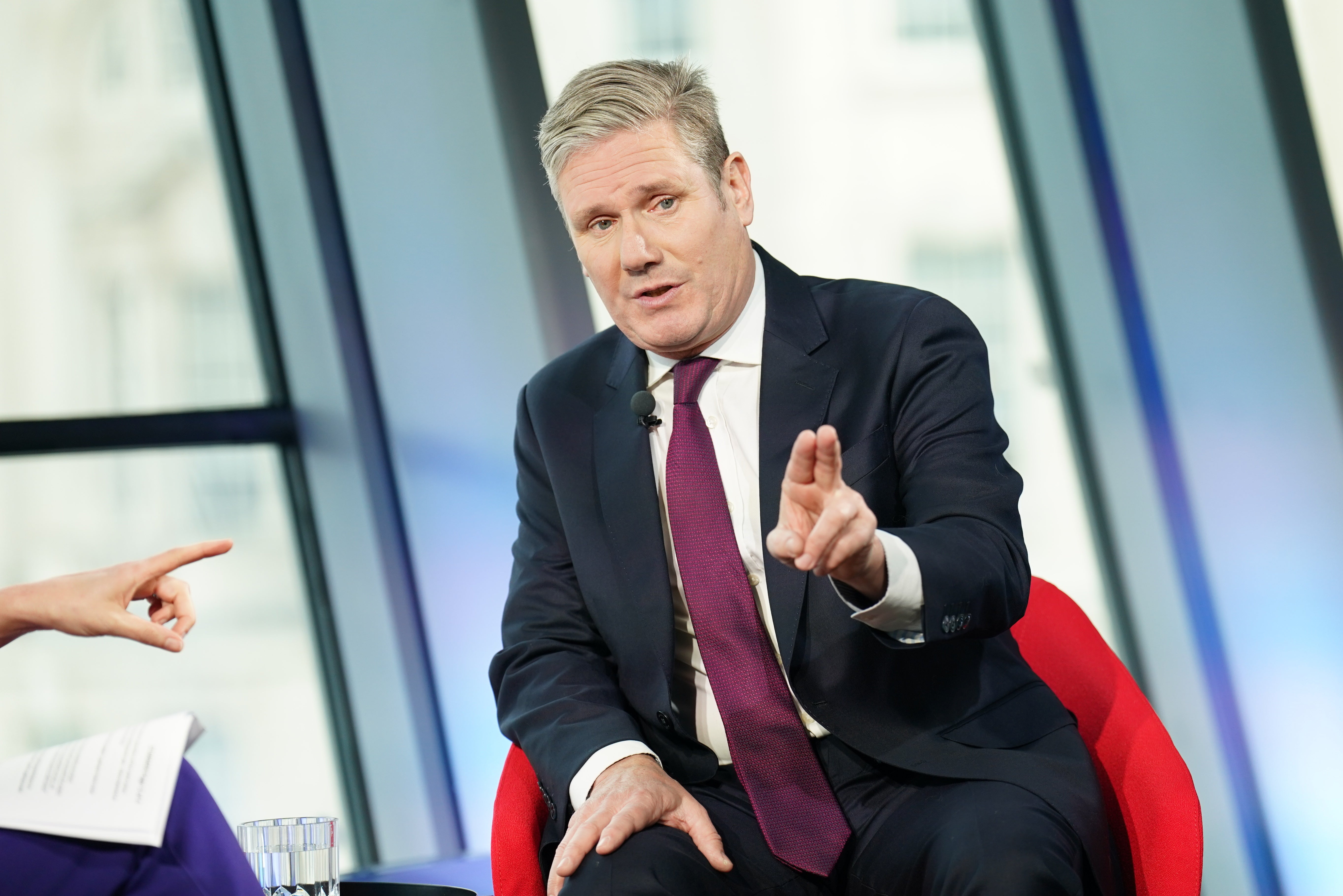Starmer vows to reverse ‘wrongheaded’ cut to income tax for rich
Labour leader Sir Keir Starmer rejected the Government’s “trickle down” economics approach.

Your support helps us to tell the story
From reproductive rights to climate change to Big Tech, The Independent is on the ground when the story is developing. Whether it's investigating the financials of Elon Musk's pro-Trump PAC or producing our latest documentary, 'The A Word', which shines a light on the American women fighting for reproductive rights, we know how important it is to parse out the facts from the messaging.
At such a critical moment in US history, we need reporters on the ground. Your donation allows us to keep sending journalists to speak to both sides of the story.
The Independent is trusted by Americans across the entire political spectrum. And unlike many other quality news outlets, we choose not to lock Americans out of our reporting and analysis with paywalls. We believe quality journalism should be available to everyone, paid for by those who can afford it.
Your support makes all the difference.Sir Keir Starmer hit out at the Government’s “wrongheaded” economic policies as he pledged to reverse the income tax cut for people earning more than £150,000.
The Labour leader, who said his party now had a belief it would win the next general election, said the mini-budget announcements by Chancellor Kwasi Kwarteng had set clear political dividing lines.
He said the Tory policy was for the “rich to get richer” while offering little to ordinary workers but said Labour would reinstate the 45p additional rate of income tax for top earners which Mr Kwarteng abolished from April next year.
But Sir Keir said he backed Mr Kwarteng’s promise to cut the basic rate of income tax from 20p to 19p.
He said people were facing a “very difficult winter” with supermarket customers “looking at the price of food and having to put it back down again” because of soaring costs.
“It’s on the back of 12 years of Tory failure. We’ve had an economy that hasn’t really grown very much for 12 years, we’ve had wages which haven’t really moved for 12 years, because they’ve taken the wrong decisions, they haven’t planned for the future.
“And now we’ve got this decision on Friday to take a very risky approach to the future, driven by this ideology, this argument – wrongheaded argument in my view – that if you simply allow the rich to get richer, somehow that money will trickle down into the pockets of all the rest of us.”
Confirming Labour’s opposition to the removal of the top rate of income tax, he told the BBC’s Sunday with Laura Kuenssberg: “I do not think that the choice to have tax cuts for those that are earning hundreds of thousands of pounds is the right choice when our economy is struggling the way it is, working people are struggling in the way they are … that is the wrong choice.”
Sir Keir said he had picked Labour “up off the canvas” after the 2019 general election drubbing which saw the Tories under Boris Johnson win an 80-seat majority.
With Liz Truss set to be his opponent at the next election, Sir Keir said: “Something has happened in the Labour Party this year, which is the hope of a Labour government has turned into a belief in a Labour government.
“That change, that switch, is worth its weight in gold.”
He said May’s local elections showed that was occurring in key electoral battlegrounds.
Sir Keir refused to set out whether Labour would match the Government’s plans for a two-year freeze on energy bills.
He said Labour’s “fully costed” plan would freeze bills until April, paid for with a windfall tax on oil and gas giants, but the party would have to look at the price forecasts beyond that date.
But he set out an ambition for the UK to have an electricity system driven entirely by renewable and nuclear power by 2030.
Labour claims the plan would save UK households a total of £93 billion over the rest of the decade – or an average saving of £475 for each household every year.
Sir Keir said the plan would be “difficult” but insisted it is “absolutely doable”.
However, he acknowledged fossil fuels may be a “fall back” if the target cannot be met by 2030.